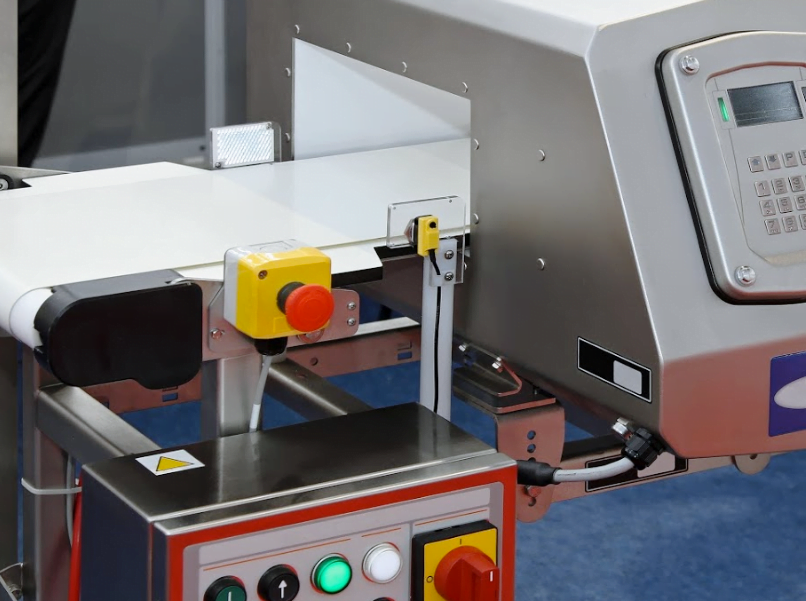With metal contamination being one of the leading causes of food contamination, it’s vital to make sure that your staff have adequate training. What do they need to know?
Here are a number of things that your team need to know about metal detectors, in order to minimise the risk of contamination.
What can metal detectors detect?
Metal detectors can determine the presence of metal contaminants that are ferrous, non-ferrous or stainless steel, and this can include parts of loose bolts and screws, machine parts, metal pieces such as staples, metal tags, screen wire and blades. The higher the sensitivity, the better the performance.
What can’t they detect?
Metal detectors cannot detect physical contaminants such as wood, glass, hair, or paint chips. They will not pick up chemical contaminants like cleaning, maintenance or pest control chemicals and they will not detect biological contaminants from microorganisms, insects, rodents and birds.
What kind of detectors can be used?
Different types of detectors are used depending on the product. For food moving along a conveyor belt, conveyor system metal detectors can examine the product. Similarly, detectors exist for free-fall or gravity system environments, as well as pipeline or pumped systems for liquid goods. For high output plants, bulk system detectors can scan 25 – 50 kilograms of product at once.
Should staff set sensitivity levels?
Team members need to know that they should not attempt to change or tamper with sensitivity controls. Sensitivity adjustment controls must not be accessible to untrained employees, and initial set-up needs to be done in consultation with the manufacturer. Access should only be given to nominated, fully trained staff and all controls should be password-protected or kept physically locked.
What should staff do with rejected products?
Your management team needs to clearly communicate to your team what the process is for rejected products, and train them in accordance with any required actions. Needless to say, no rejected product must ever be returned to the production line, but there should be guidelines in place for your staff to follow if metal detectors determine the presence of foreign contaminants.
Should staff ever perform maintenance on metal detectors?
The accuracy of your equipment can only be assured with regular maintenance, but by whom? Maintenance should always be carried out by the equipment’s manufacturers, but alternately, it can also be done by your own engineers, provided that they have been trained by the manufacturers. Part of in-house training is to inform your staff that maintenance must be left to the experts.
The importance of training your staff in the principles and use of metal detection equipment and the use of testing routines cannot be stressed enough, because the effectiveness of specialist equipment is only as good as the people who are using it.
So what are you waiting for? Minimise the risk today! Download your very own metal detectable guide.

